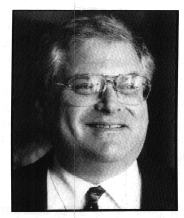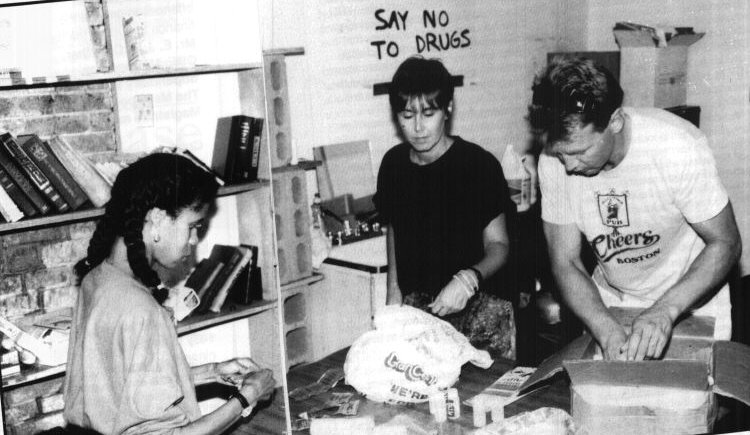| Articles - Needle exchange & User rooms |
Drug Abuse
NOTES FROM THE DRUG WARS
by Ernest Drucker
The trial of Jon Parker
Last week in Boston’s old Municipal Courthouse, a small step was taken for peace in the Drug Wars. Jon Parker, a 35 year old Boston native, arrested while distributing sterile needles and syringes to addicts for the purpose of AIDS prevention, was found innocent. Though Parker had, by his own admission, violated the law prohibiting possession and distribution of injecting equipment, Judge Sally Kelly found that there was neither harm nor criminal intent in his actions, and that he was, therefore, guilty of no crime. In her carefully worded ruling, she agreed with arguments put forward by Parker's attorney, public defender Arnold Abelow; the testimony of several expert witnesses - including Dr. George Lamb of the Harvard Medical School and AIDS advisor to Boston Mayor Ray Flynn; and an Amicus brief filed by the Boston AIDS committee and the American Civil Liberties Union. Judge Kelly held that Jon Parker's behaviour was justified by the severity of the AIDS problem indeed that it appeared to serve the public interest. Jon Parker knows these data, and a lot more, about AIDS. He began medical school and is now a graduate student completing his Masters degree in Public Health at Yale University. Parker's thesis examines the potential that local outreach and needle distribution programs like the AIDS Brigade have for stemming the tide of new infections. His conclusions echo those of larger government sponsored studies undertaken in Great Britain, the Netherlands, and Australia - studies which demonstrate the vital role that provision of clean needles can play in AIDS prevention programs hoping to reach active drug users. Several other countries are planning to adopt a similar approach. New York City, with 200,000 addicts, (over 50% of them already infected), has just completed an evaluation of its own extremely modest needle exchange program. While only serving 300 clients and operating out of cramped quarters in an old TB laboratory of the City's Health Department, the City's needle exchange program appears to succeed as a "bridge to treatment". 60% of those who have come to the program have used it to enter drug treatment programs where they will try to stop injecting altogether. Jon Parker also knows a lot about drugs. He is a former heroin addict who, when he was 17 years old, spent two years on Deer Island - a correctional facility located in Boston Harbour. Deer Island is only a few miles from the courthouse where, almost twenty years later, Jon Parker is once again on trial for charges related to drugs - this time for trying to keep other addicts from getting AIDS. One of these addicts, Kevin M., explained that he had known Jon since they were both kids growing up in Boston. Kevin used heroin for over 10 years but didn't know of the risk of AIDS - he thought only gays could get it. It took his old friend to persuade him of his risk, and the clean needles that Jon provided to avoid infection while Kevin waited to enter treatment. Today Kevin is drug-free, has a wife and two young kids, and works for the City of Boston. At the trial, he testified that Jon Parker had saved his life. Jon Parker's case has attracted national media attention. A few days before the trial, Dan Rather ran a sympathetic feature and Ted Koppel devoted a Nightline show to it. The Koppel show included former New York City Health Commissioner Dr. Stephen Joseph, who has advocated for the city's needle exchange program in the face of heavy political opposition; and Deputy drug czar Dr. Herbert Kleber, a prominent drug researcher from Yale University. Kleber, like his boss, William Bennett, believes that distributing needles "gives the wrong message" and that there is not yet sufficient evidence to demonstrate that they would be effective in stopping the spread of AIDS - not totally surprising since Federal policy prohibits funding of research studies which might answer the question. Kleber dismissed Parker's efforts as well intentioned but misdirected. More critically, he ignored the sense of urgency that drives Parker's efforts - going on about the "symbolism" of needle sharing in the addict's "culture". Parker himself appeared nervous - he is somewhat dyslexic - and struggled to articulate his position. But, by the end of the show, he addressed Kleber forcefully saying that, some day, "they will point a finger at people like you". And, perhaps, they will ask why he and other health officials failed to act when so many lives were at stake. Finally, outside the courtroom, after he had won his own great moral and personal victory, establishing a landmark precedent for the rest of us, Jon Parker was confronted by a reporter who asked if his acquittal meant that he would continue to give out needles? Cautioned by his attorney not to flaunt his victory, Parker was diplomatic. He was "very gratified by the outcome" and felt it "would help save lives". The reporter pressed the point. "Right now, when you walk out of this courthouse, if you meet an addict on the steps - an addict still using dirty needles - would you give him a clean one"? Jon Parker looked straight at the cameras – at us – and answered in very clear voice, "Yes I would" 
Ernest Drucker, Ph.D. is Director of the Drug Treatment Program and Professor of Epidemiology and Social Medicine at Montefiore Medical Centre/Albert Einstein College of Medicine in the Bronx.
Parker is the founder of the National AIDS Brigade - a network of several dozen volunteers who have been distributing clean needles, bleach and condoms (as well as instructions on how to use them safely) to IV drug users in the Northeast corridor - Philadelphia, New York, New Haven, and Boston - cities where 40%-70% of drug addicts are already infected with the AIDS virus.












